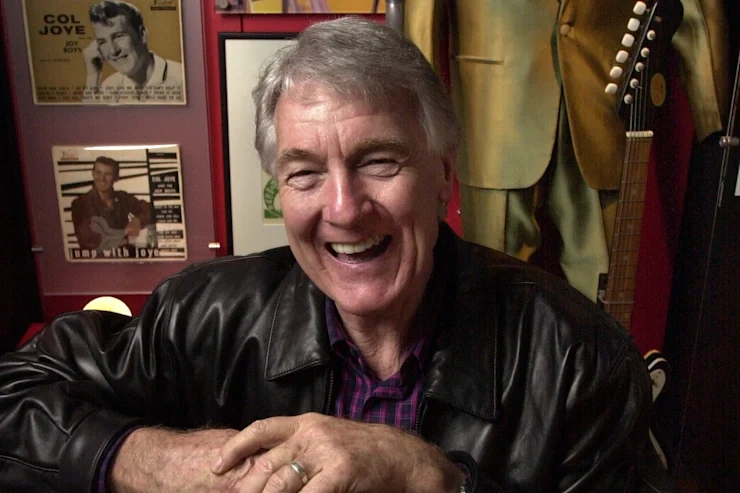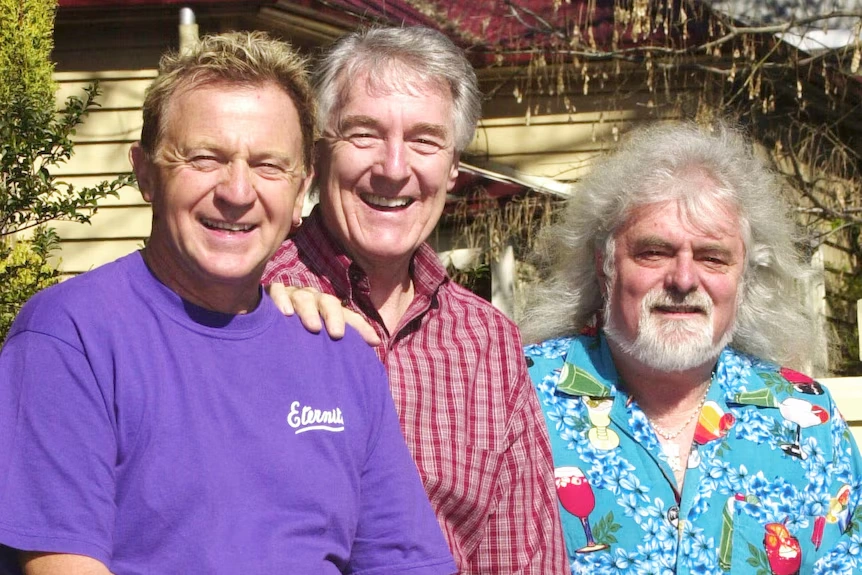Col Joye dies at 89, closing a career that established the sound and look of Australian rock and pop. The artist, whose real name was Colin Frederick Jacobsen AM, passed away on Tuesday. He was a chart-topping performer, bandleader, and pioneering music entrepreneur who made a lasting mark on the local industry.

Australian rock legend Col Joye
Joye was best known for performing with the band Col Joye and the Joy Boys and for being the first Australian pop artist to dominate local charts with the hit song “Bye Bye Baby” in 1959. He also assisted in launching the Bee Gees when he signed them early in their career.
Early Career and Chart Success
Col Joye began his career in 1957 as a band member of his brother Kevin Jacobsen’s Sydney-based group, The KJ Quintet. The band changed its name to Col Joye and the Joy Boys in a bid to perform at the Manly Jazzerama. After Keith Jacobsen joined the group on the bass, the band had already attained a fan base within Bankstown and Sydney.
In 1959, the group’s second single, “Bye Bye Baby,” topped the Sydney charts. The record featured backing vocals by The Sapphires, a First Nations all-girl group, and was an enormous landmark in Australian music. The band had three more top-10 achievements over the next few years as local rock ‘n’ roll gathered momentum.
Starting up in Artist Management and Production
During the 1960s, Joye branched out from performing to artist development. With brother Kevin, he began a publishing, management, and recording operation, ATA Studios, in Glebe.
In 1961, Joye met the Bee Gees while touring at Surfers Paradise. He contracted them to Joye Music, and the Gibb brothers were supporting him on vocals as early as 1963 on his single “Starlight of Love.” The alliance was one of the first professional recordings to feature the Bee Gees.
With ATA, Joye helped establish careers and support Australian artists when visiting acts dominated the local scene. His business ventures opened doors to more aggressive local representation in the music sector.
Tours and Military Entertainment Contributions
While Joye’s career was not limited to business, he also toured in Vietnam in 1966 to entertain Australian troops stationed near the battlefields. He accompanied Little Pattie, a singer, to the Nui Dat base, near where Battle of Long Tan had occurred. This dedication to performing for Australian servicemen overseas demonstrated his strong passion for music and national service. These concerts were one piece in a broader cultural effort by Australian musicians to divert the soldiers’ attentions away from conflict during war.
Later Life and Recovery
Despite suffering a severe set-back in 1990, when he fell six meters while cutting back a neighbour’s tree, Joye regained full health. He emerged from retirement and resumed performing in 1998, touring with other music veterans on the “Long Way to the Top” tour in the early 2000s. Joye was a consistent and complaining-free member on tour with his peers. Normie Rowe has referred to him as a “guiding light” and said that Joye would carry a ukulele on each leg of the tour and have the band sing songs with him prior to a show or a flight.
Recognition and Lasting Influence
Col Joye was added to the ARIA Hall of Fame in 1988 and was awarded the Order of Australia in 1981. He was further recognized in 1998 when Australia Post issued a stamp featuring his portrait and the name of his hit song “Oh Yeah Uh Huh.”
Joye bequeathed more than 1,200 personal items to the National Film and Sound Archive, making his work for the ages. His contribution across all sectors of the industry singing to production demonstrated the reach of his career.
Artists’ Personal Reflections 
Normie Rowe, Col Joye and Brian Cadd
Normie Rowe and Little Pattie were among those to share their own memories of Joye upon learning of his passing. Rowe recalled being inspired as a child by Joye and then being offered his Maton guitar as a gift in person. He said Joye made everyone feel at home and had music wherever he went.
Little Pattie also spoke about 2GB and called him a legend of Australian music and shared memories of their Vietnam tour and getting close on and off stage. The two artists praised Joye for being kind, humble, and generous throughout his life.
Final Thoughts
Col Joye dies at 89, closing the curtains on one of the longest and most influential of Australian music careers. From topping the charts in the 1950s through discovering legendary talent and inspiring other artists, his record reached all areas of the business. He leaves behind a legacy that continues to shape Australia’s musical history.











